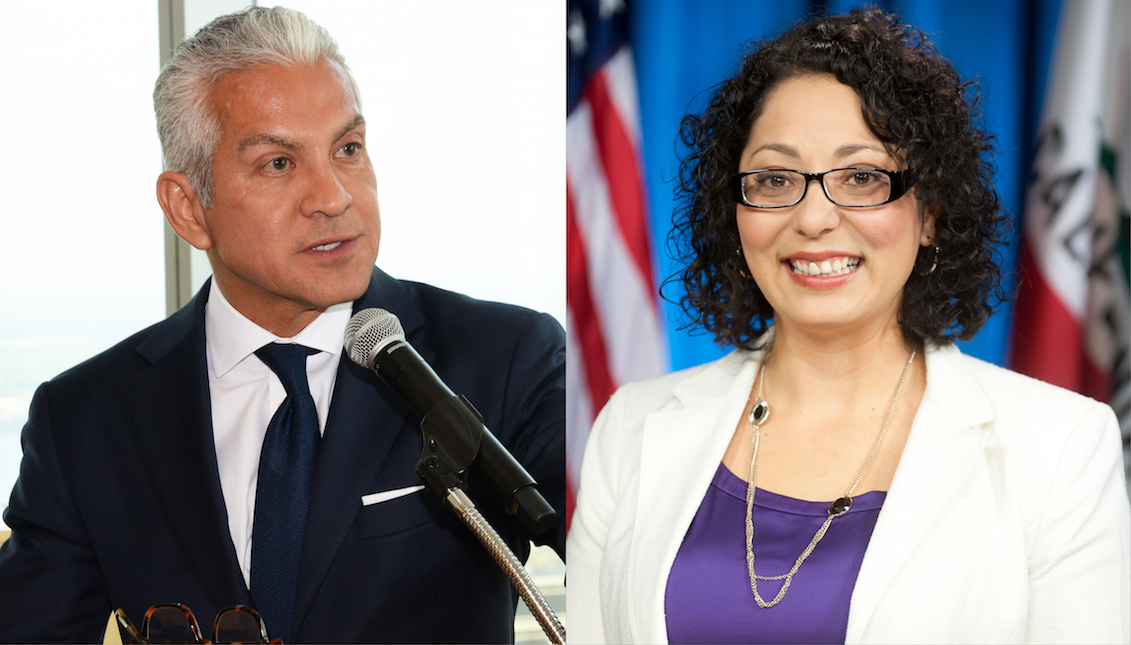
Sexual harassment and the Latin American community in the United States
2017 will be remembered as the year in which we all said, "Enough is enough" to sexual harassment. From Hollywood to the Capitol, thousands of people have…
Between the macho culture that has forged Latin America and the exaggerated assertions of President Trump - who called the Mexican immigrant a "rapist" - the stigma of sexual harassment in our community is still a taboo that won’t simply end with movements like #MeToo, for example.
Just last week, the media reported the stories of Javier Palomarez (former director of the Hispanic Chamber of Commerce in the United States) and the Assemblywoman of California, Cristina García, who had been accused of alleged sexual harassment. For many, it was the first time they saw a Latino name publicly associated with this phenomenon.
A few months ago, the news of Senator Tony Mendoza also drew attention, but while there was a great uproar in Hollywood, in the daily life of many Latina women, the silence was still the norm.
Currently, Latinos in the United States number 58 million people, according to Pew Research Center analyzes. Of these, 21.2% of women have claimed to experience some type of sexual abuse, according to the National Violence Against Women Survey (NVAWS), being perpetrated 23.4% of the time by their partner. Likewise, 48% of Latinas reported in the study "violence by their partner had increased since they immigrated to the United States."
The nature of Latin American culture is undoubtedly what makes it more difficult to address this type of problem. With a strongly religious social structure, where "women receive the role of wife and mother," divorce is still not accepted and there is still some reluctance regarding contraceptive methods, which largely nullifies the power of decision of the Latin American woman. That is why, as the NVAWS continues, "Latin women frequently accept their situation with resignation."
With these characteristics, the Office for Victims of Crime (OVC) projects that "by the year 2050, the number of Hispanic women who have experienced some type of sexual violence could reach 10.8 million," especially for the perpetuation of aggressive behavior at home (according to Raquel Kennedy Bergen, married Latina women are less likely to define their experiences of forced sex by their husbands as "rape").
Likewise, the Southern Poverty Law Center reported that 77% of Latina women say that "sexual harassment is a serious problem in the workplace" because of the objectification of their bodies or because they are considered "weak" individuals in general.
RELATED CONTENT
And in the Trump era, the situation only aggravates.
Faced with the fear of being deported if they report the crime, women who have been victims of sexual harassment prefer to remain silent and continue to suffer in silence.
As Grace Huang (policy director at the Asia Pacific Institute for Gender Violence in Oakland, CA) wrote to the Huffington Post: "Fear of deportation is one of the main barriers preventing immigrant victims from seeking help," she explained. "Attackers often exploit this fear as a tool to keep their victims quiet."
Although much has been achieved with the feminine demand movement in recent months, the Latino population remains one of the most affected and, at the same time, one of the least represented in the public debate.
Considering that street harassment begins at a younger age for Latin American women, as reported by the Stop Street Harassment study, and that most of the aid centers and training and prevention materials are not available in Spanish, our struggle is more imminent than ever.
The moment is now. Speak, report and share.
If you are a victim of sexual harassment in Philadelphia, do not hesitate to contact Women Organized Against Rape, where they will be able to assist you in your own language.











LEAVE A COMMENT: